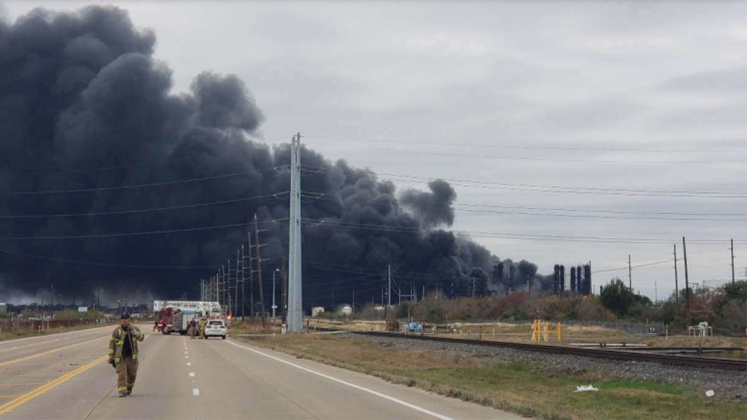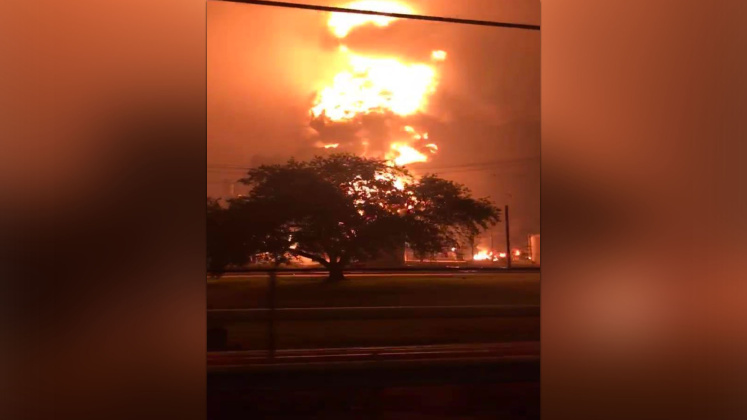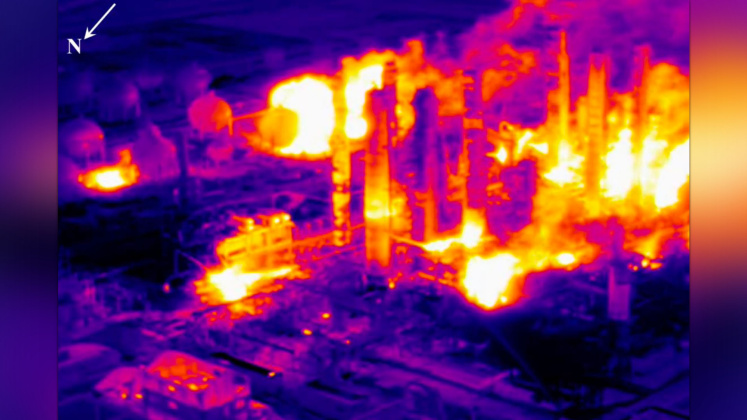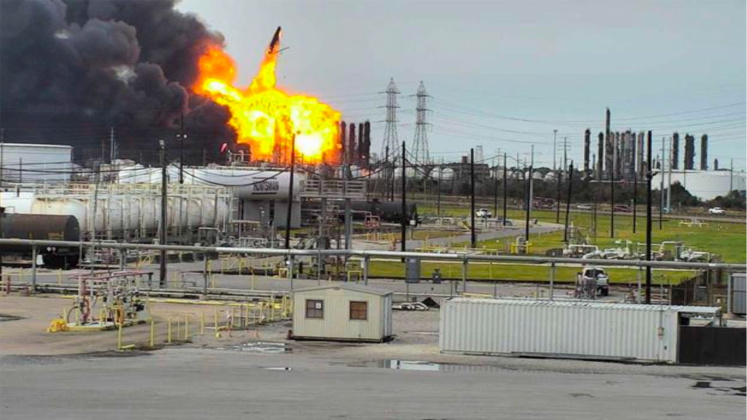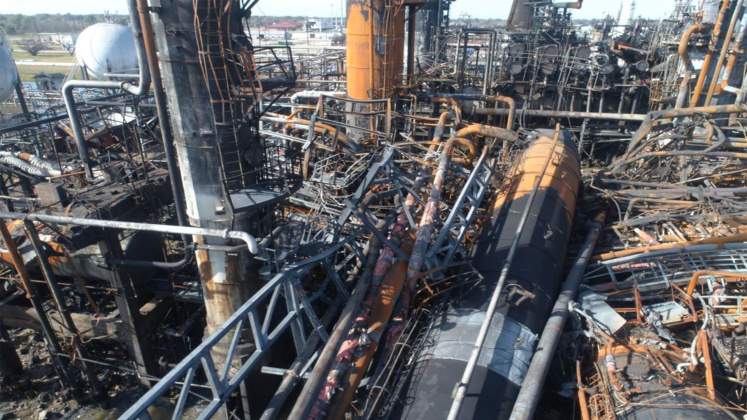Federal investigators are conducting a criminal investigation into circumstances surrounding a 2019 explosion that rocked the TPC petrochemical facility in Port Neches, as well as surrounding private residences and businesses for miles in all directions.
Pursuant to information obtained from the FBI, and alleged in Docket Number 1:23-MC-00007, the United States is currently seeking to identify the believed enormous amounts of victims affected by the explosive event. To facilitate the process of assessing the number of victims, the U.S. is publishing public notices informing possible claimants of their rights to participate in the investigation, as well as initiate potential victim compensation to follow any guilty verdicts or pleas. In an advisement released July 28, the prosecuting agency defers to an “Order Authorizing Crime Victim Notification” released July 13 through the United States District Court for the Eastern District of Texas as to the existence of a criminal investigation. However, the prosecuting agency recorded that word of an investigation was leaked long ago, albeit in a limited showing.
“TPC Group LLC publicly reported the existence of the criminal investigation into the explosion as part of a separate bankruptcy litigation,” the criminal investigation announcement revealed of the little-known admission. “In a Disclosure Statement filed on June 16, 2022, the company stated that both the EPA and the DOJ were investigating the explosion,” as shown in Case No. 22-10493-CTG at Doc. 217, p. 39.
As detailed in an independent federal agency investigative report used to notify the public of the criminal complaint in process, a series of explosions occurred at the TPC Group (TPC) Port Neches Operations (PNO) facility, located in Port Neches, on Nov. 27, 2019, after highly flammable butadiene released from the process unit.
“The explosions caused a process tower to propel through the air and land within the facility, other process towers to fall within the unit, extensive facility damage, and fires that burned for more than a month within the facility,” the investigative report revealed. “The explosion also led to reduced usage of the Sabine-Neches Waterway, the nation’s third largest waterway by cargo volume and a major economic driver in the U.S.
“The incident caused $450 million in on-site property damage, and $153 million in off-site property damage to nearby homes and businesses. Media reports indicated that the blast was felt up to 30 miles away.”
At the time of the blast, Jefferson County officials declared the county to be in a state of disaster, further issuing a mandatory four-mile radius evacuation order that affected people in the cities of Port Neches, Groves, Nederland, and a portion of Port Arthur.
U.S. Chemical Safety and Hazard Investigation Board Investigation Report No. 2020-02- I-TX (December 2020) assessed the explosion as the direct cause of injuries to four TPC Group LLC employees and one contractor – but many other victims are expected to be identified as the FBI continues its investigation. In the hours immediately following the explosion, the hospital closest to TPC reported more than 100 patients seeking treatment due to the catastrophe.
“The Medical Center of Southeast Texas is approximately six miles from the actual explosion, which happened in the middle of the night,” then Emergency Room Director Katie Marioneaux, RN, said of the 1 a.m. event that necessitated all hands on deck at the ER. “We were the only full-service hospital (in the proximity) available at that time. It was a very humbling experience but, like every night, we were ready. The response from the medical staff was swift and seamless. We’re definitely used to all types of emergencies and disasters, but usually on a much smaller scale.”
According to Marioneaux, patients reported lacerations, difficulty breathing and assorted respiratory complications. The hazardous chemical released, 1,3-Butadiene, is a colorless gas that, in acute exposure, can cause irritation of the eyes, nasal passages and throat, fatigue, decreased blood pressure, central nervous system damage and cancer.
Department of Justice filings quote the Crime Victim Rights Act (CVRA) in defining who would qualify as victims of the TPC incident.
A victim is “a person that has suffered direct physical, emotional, or pecuniary harm as a result of the commission of a crime,” as described in 34 U.S.C. § 20141(e)(2). Under the CVRA, a “crime victim” is defined as “a person directly and proximately harmed as a result of the commission of a Federal offense or an offense in the District of Columbia,” circa 18 U.S.C. § 3771(e)(2)(A).
Crime victims are afforded certain enumerated statutory rights, according to the United States Department of Justice (DOJ), including the “reasonable right to confer with the attorney for the government in the case,” as well the “right to be informed in a timely manner of any plea bargain.”
Anyone believing they are a victim of the TPC explosion is urged to identify the scope of harm in a DOJ-provided form online at dojenrd.gov1.qualtrics. com/jfe/form/SV_9NdQQPrdtM6ldPg.
Claimants will be asked to describe, in detail, how the TPC explosion negatively impacted physical, financial, or other standings. For example, victims can report “physical pain, discomfort, illness, scarring, disfigurement or physical limitation; immediate or short-term medical care; hospitalization or surgery; treatment, counseling, or medication; the need for any further treatment or the expectation to receive further treatment; (and) any permanent or long-term disability.
Examples of emotional victimization that can be claimed include negative impacts to lifestyle, activities, mental wellbeing, sleeping habits, relationships with family and friends, and the ability to attend work or school, as well as reported depression, anxiety, post-traumatic stress disorder, and the need for counseling or other third-party intercession.
Fiscal loss is likewise asked of TPC explosion victims. Claimants are asked to describe “how the crime has financially affected you or the person(s) you represent.” Among claims for financial loss are the costs associated with property that was lost or damaged, the cost of repairs or replacement, the amount of depreciation of any property, any financial loss due to missed time from work or school as a result of the crime, other financial impacts due to an inability to earn a living, the cost of any medical expenses or counseling, cost or losses as a result of the crime that are not covered by insurance or a state victim compensation program, cost of alternative lodging due to evacuation, and additional transportation costs due to need to travel farther distances to school, work, etc.
“If you want to inform the prosecutor evaluating the evidence in this investigation of your views regarding potential plea agreements, or any other aspect of the case, please contact the Environmental Crimes Section,” the DOJ informed possible victims, adding that, “All individuals and corporations, to include TPC Group LLC, retain their presumption of innocence, and no inference whatsoever of guilt attaches from the existence of this investigation or this notice.”
Those wanted to voice approval, objection, or inquiry, can contact the United States Department of Justice, Environmental Crimes Section, at (833) 676-1816 or via email at crimevictimprogram.enrd@usdoj.gov.
“Our office cannot act as your attorney or provide you with legal advice, and you can seek the advice of an attorney with respect to the possibility that you might be a victim, the rights described above, or other related legal matters,” the DOJ further advised.


